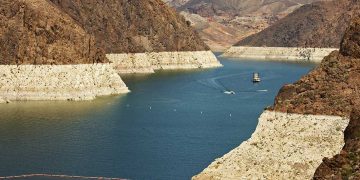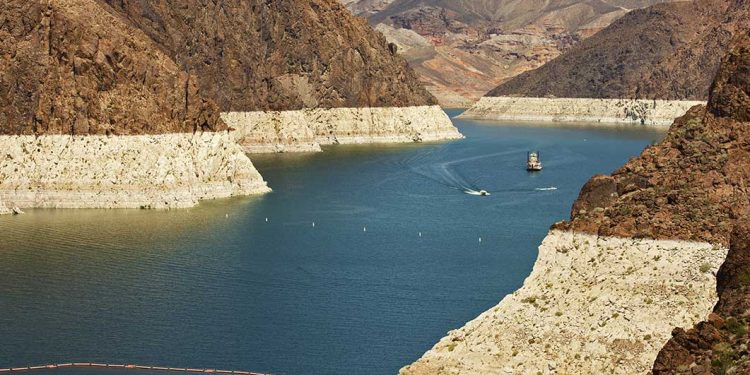#ColoradoRiverDrought #WaterSupplyCuts #BidenAdministration #DepartmentOfInterior #LakeMead #LakePowell #AgricultureIndustry #WaterRightsHolders #WesternStatesEconomies #SevereDrought #StabilityAndSustainability #InvestingInAmerica #FederalStats #JuniorWaterRightsHolders #UpperBasin #LowerBasin #TommyBeaudreau #40MillionAmericans #VegetablesAndFruits #DeadPoolLevels
The severe drought conditions in the Colorado River Basin have prompted the Biden administration to propose actions that would significantly reduce water supplies in seven western states, affecting over 40 million Americans and vital for western states’ economies. The Department of the Interior released a draft proposal outlining two potential actions that include federally-mandated supply reductions for states dependent on the river system, with a third option of maintaining the status quo. The proposed actions would entail progressively deeper supply reductions based on how much Lake Mead’s level declines, with the federal government able to cut supplies by up to two million acre-feet.
The first proposed action by the DOI would benefit the agriculture industry in California but disproportionately negatively impact junior water rights holders in Arizona. The second proposal would result in even water supply reductions across the Lower Basin states regardless of seniority, leading to less water for farmers in California that supply the US with a large share of the nation’s vegetables and fruits. Failure is not an option, says DOI Deputy Secretary Tommy Beaudreau, as the Biden-Harris administration brings every tool and resource to bear to protect the stability and sustainability of the Colorado River System.
The Colorado River provides water resources to seven states divided into two groups: the Upper Basin and Lower Basin. While Upper Basin states mainly receive water from smaller rivers that branch off the Colorado River, the Lower Basin states largely receive water pooled in Lake Powell and Lake Mead. The proposed actions are necessary to combat the Colorado River Basin’s deteriorating water levels, with Lake Powell’s level dropped to about 3,520 feet and Lake Mead’s level to 1,046 feet, according to federal stats. The proposed water supply cuts would be a significant development with far-reaching consequences for the agriculture industry and the economy, particularly in the affected states.































